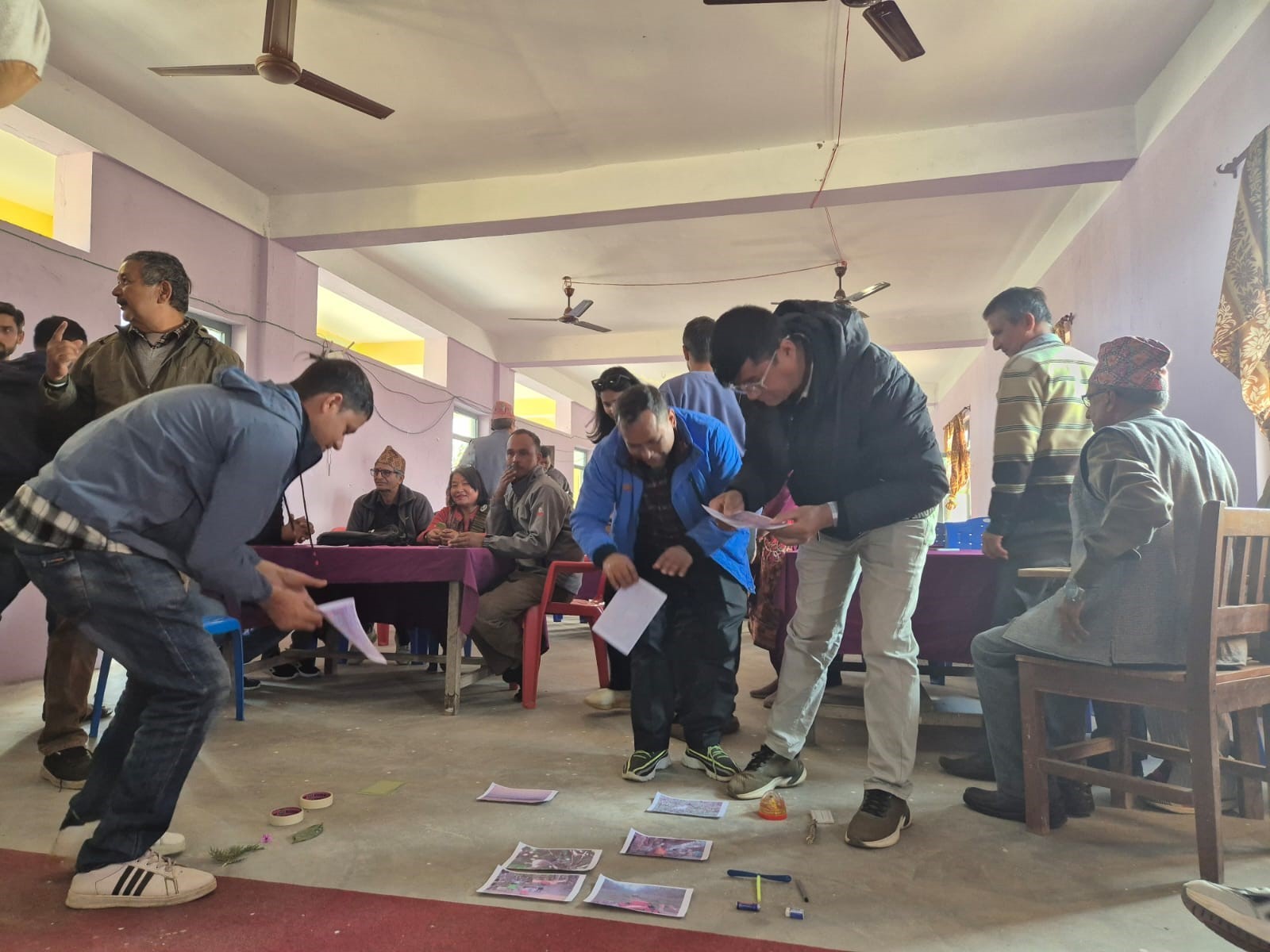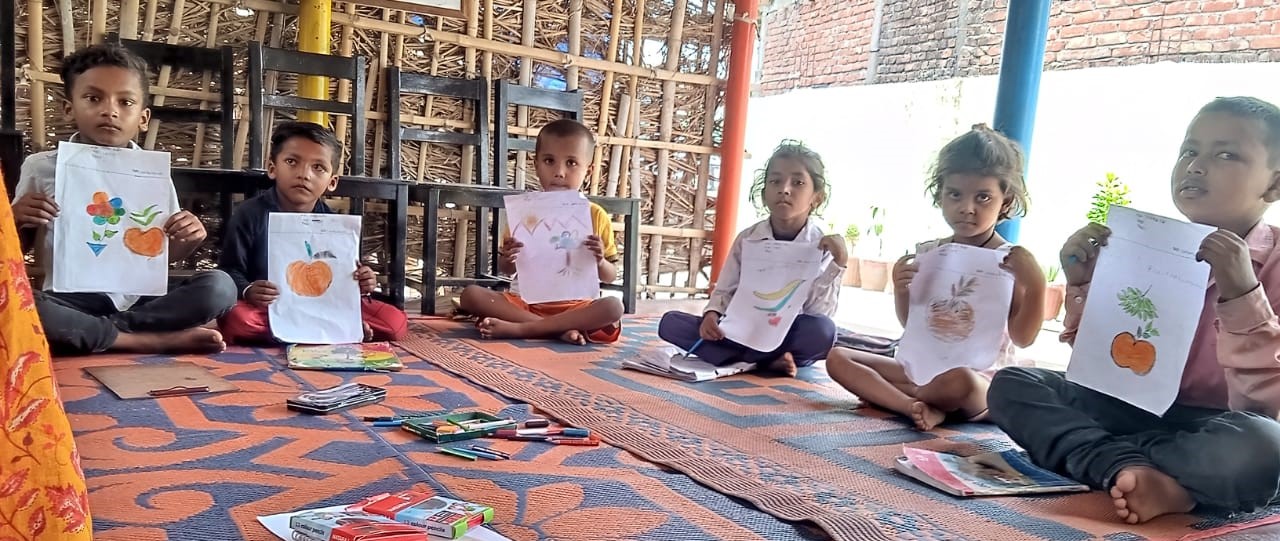
Innovation
Education
Technology

Innovation
Education
Technology

20 Dec, 2024
Education is the backbone of development in any community, and Jeetpur Simara Submetropolitan stands no exception. To discuss the problems of the local education system and dream about a brighter future for students, a collaborative event was organized with key stakeholders such as the Provincial Assembly Members- Mr. Dev Narayan Chaudhary, Mayor-Mr. Rajan Poudel, principals, officials from the Education department of Jeetpur Simara Sub-Metropolitan- Harish Bhatta, College chiefs, the management team of Simara college, media persons, local politicians, and educators from various institutions. The event, facilitated by the Bits Ladder Team, explored critical issues in the education system, discussed the impact of Teaching Assistants (TAs), and crafted a vision for the future of education in the region.
The Collaborative Dialogue: Key Issues and Insights
The event was lined up with a series of activities that would generate valuable insights into the current state of education in Jeetpur Simara Sub-metropolitan.
Activity 1: Anticipated Problems in Education
Activity 2: Positive Changes After the Appointment of Teaching Assistants (TAs)
Activity 3: Envisioning the Future of Education
Conclusion: The Roadmap to Reforming Education
This collaborative event has cast light on the looming challenges and opportunities that exist in the education system of Jeetpur Simara Sub-metropolitan, starting from infrastructural deficiencies to the transformative impact of the Teaching Assistants themselves, thus painting a picture of where the system is and where it should be. Looking ahead, collaboration, innovation, and a shared commitment toward ensuring the improvement of learning experiences for all students form the bedrock upon which the future of education will rest in Jeetpur Simara Sub-metropolitan City. Emphasizing skill-based, inclusive, and accessible education, will lay the bedrock for a generation of learners who are academically competent but also practically capable and emotionally intelligent to succeed in the real world. This event marked a collective effort to reform the education system, ensuring that it aligns with the needs of students, teachers, and the community at large. The insights and vision shared during the discussions will undoubtedly serve as a roadmap for creating an education system that fosters innovation, inclusivity, and meaningful learning outcomes for all.

27 Mar, 2023
On the occasion of constitution day, I utilized the holiday to travel to Tilathi Koiladi rural municipality of Saptari district to share my teaching experience and train the teachers employed in the Mahakavi Bidhyapati Boarding School. It took me around 8 hours to reach the destination and those 8 hours I spent watching the variety of landscapes offered by the Terai region of Nepal. Though it took me a whole day to travel I really enjoyed my trip as I got to board on the window seat of the bus.
The peaceful environment of Tilathi was heartwarming. I was amazed to witness the presence of trees and greenery inside the village which I find rare in the villages of Terai region. Almost every house in the village had a tree planted in and the environment was free from unwanted garbage. One of the greatest fears in the Terai region is mosquito bites but surprisingly Tilathi has very few mosquitoes in comparison to other other villages I had ever been which impressed me a lot. On many occasions, I could smell the fragrance of flowers on the streets of the village which is enough to express the beauty of this village. There are a number of sightseeing spots for outsiders like me to visit and witness the true beauty of the village. Several ponds and fields full of grains planted dancing along with the eastern breeze in the evening is truly an amazing experience to witness and I really felt blessed to be there at that moment of time. In the race for development, many villages are trying to become a city but in my opinion, the village should remain the village and pursue a developed village. I would consider Tilathi as a well-developed village that has pure cultural reflection and a true taste of a village that connects us to nature in this busy world.
I may get apart from Tilathi but there shall always be some part of Tilathi in my heart and I am really thankful to Shailendra Dai for providing me with such a once-in-a-lifetime opportunity.
Observations
The purpose of my visit to ILC in Tilathi is to share my experience and enhance the effectiveness of the school by providing training to teachers. I spent 2 days observing the teaching practices and environment of the school. The observations are:
Reinforcing the teachers
It is very obvious that without proper training the teachers teach in the way they had been taught. But with the passage of time and the demand of creativity, logic, leadership skills, and critical thinking among the students to cope with the environment and stand tall among others is increasing. Hence, I tried to make teachers realize the importance of themselves for the betterment of students and society as a whole. The training was conducted after the completion of classes every day. The glimpse of training are:
Impact
It would be early to analyze the impact of such short training, as analysis needs time. Although there are some small but major changes which I find is worth of.
What could have been done better?
Conclusion
Provided to prepare for training and the time period to conduct the training I would say it is a fruitful achievement where teachers are now aware of their actions and their importance in building the base for those students. The subject matters included in the training program were enough but with the time constraints the reinforcement could not be done, however, teachers are now aware of techniques and activities to be carried out. A well-motivated teacher would go beyond the boundaries by themselves to carry out the research and reflect on it during their teaching sessions. Further, teachers can also use backward planning for themselves and their children’s future if fully dedicated to following what they learned. But of course, reinforcement on a timely basis would surely improve the learning and teaching quality.
27 Mar, 2023
Although being in the same district all the 3 schools have very different backgrounds on an operational basis as NSKAB is primary level, MTS is Secondary level and KUKLBSS is the girls school. In the first week, I tried to observe and understand the tradition of teaching practices. Besides that, I also tried to understand the concept and views of different teachers regarding the use of A/V classes where I found the following observations:
Observations in NSKAB:
Observations in MTISSS:
Observations in KUKLBSS
After a week-long observation of the schools it was necessary to carry out a few activities for the betterment of the teaching and learning practices.
It totally depends on teachers and the school management on the use of technology for teaching practices. The schools whose teachers are aware of importance of the computers have surely made an impact in comparison to other schools where teachers resist the change. The overall impact in all the schools is listed below:
Impact on NSKAB
Impact on KUKLBSS
Impact on MTISSS
What could have been done better?
Conclusion
The school's teachers are yet to understand the importance of the opportunity provided as it has come free of cost which has not been producing the results desired. The human nature of “resisting change” of some teachers has prioritized the traditional method of teaching over the A/V medium. On the other hand, those teachers who want to teach through the A/V medium have to face the lack of a proper routine schedule to teach properly. Hence, I recommend asking the schools to set a proper routine at first and follow it in a proper way if a fruitful result is desired.